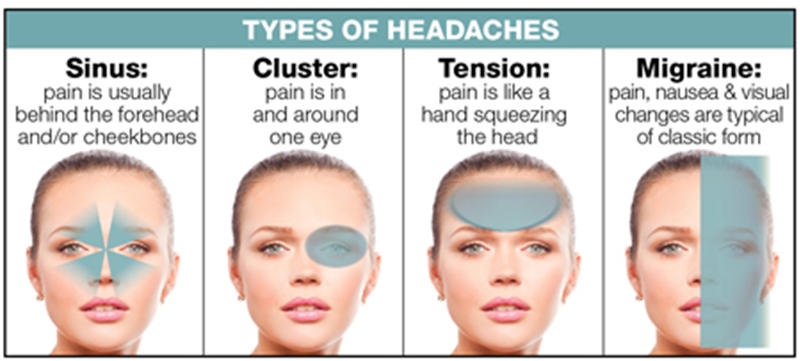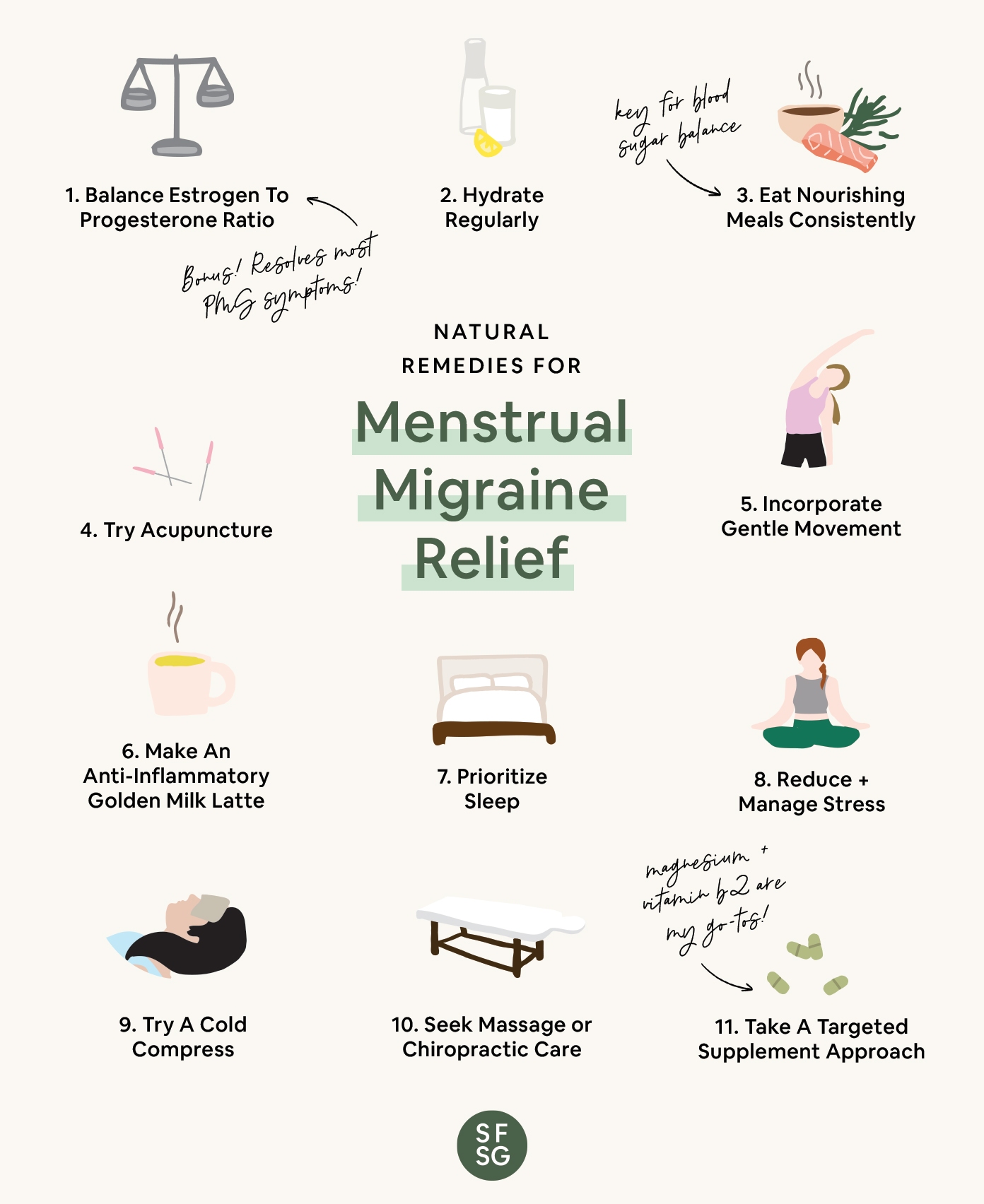Topic how to make a headache go away quickly: Explore effective ways to alleviate headaches swiftly in our comprehensive guide, "How to Make a Headache Go Away Quickly: Proven Strategies and Remedies."
Table of Content
- How can I quickly make a headache go away?
- Understanding Different Types of Headaches
- Natural Remedies for Relief
- Foods That Can Help Alleviate Headaches
- Herbs and Supplements for Headache Relief
- Medications and Treatments for Severe Cases
- Preventive Strategies and Lifestyle Changes
- YOUTUBE: 5 Fast Ways to Fix Your Headache
- When to Seek Medical Attention for Headaches
How can I quickly make a headache go away?
To quickly make a headache go away, you can try the following steps:
- Find a calm environment and turn off the lights to reduce sensory stimulation.
- Apply a cold pack or a hot compress to your head or neck to alleviate the pain. Try both and see which provides relief.
- Try to ease pressure on your scalp or head. You can gently massage your temples or the base of your skull.
- Dim the lights or close your eyes to reduce any visual strain that may be aggravating the headache.
- Practice deep breathing exercises or relaxation techniques to relax your body and reduce tension.
- Stay hydrated by drinking enough water throughout the day to prevent dehydration, which can trigger headaches.
- Consider taking an over-the-counter pain reliever, such as acetaminophen or ibuprofen, following the recommended dosage.
- Evaluate your diet and try to identify any potential triggers. Avoid foods that commonly cause headaches, such as processed meats, aged cheeses, and foods with artificial additives.
- Manage stress through regular exercise, adequate sleep, and practicing mindfulness or meditation techniques.
It\'s important to note that if headaches persist or worsen, it\'s recommended to consult with a healthcare professional for a proper diagnosis and treatment plan.
READ MORE:
Understanding Different Types of Headaches
Headaches can be broadly categorized into several types, each with unique characteristics and triggers. Understanding these types can aid in more effective treatment.
- Tension Headaches: The most common form, characterized by a constant ache or pressure around the head, especially at the temples or back of the head and neck.
- Migraines: Known for causing intense, throbbing pain on one side of the head, often accompanied by nausea, vomiting, and extreme sensitivity to light and sound.
- Cluster Headaches: These are severe and typically occur in patterns or ‘clusters,’ marked by intense burning or piercing pain behind or around one eye.
- Sinus Headaches: Often associated with sinus infection symptoms like fever, stuffy nose, cough, congestion, and facial pressure.
- Rebound Headaches: Caused by overuse of headache medication. These headaches start early in the day and persist throughout the day.
- Hormonal Headaches: These are linked to hormonal fluctuations, commonly experienced by women during menstruation, pregnancy, or menopause.
- Exertional Headaches: Triggered by intense physical activity, such as running, weight lifting, or sexual activity.
Identifying the type of headache is crucial for selecting an appropriate treatment method.

Natural Remedies for Relief
Headaches, a common ailment, can often be alleviated with natural remedies. This section delves into various strategies that can provide relief without the need for medical intervention.
- Aromatherapy: Essential oils like peppermint, rosemary, eucalyptus, and lavender are known for their headache-relieving properties.
- Hot and Cold Compresses: Alternating between hot and cold compresses can soothe sinus pain and help with congestion.
- Acupuncture: This ancient technique is linked to significant headache relief, particularly for migraines.
- Yoga: Certain yoga poses like Seated Forward Bends and Child’s Pose can be beneficial in preventing and easing migraines.
- Meditation: Regular meditation has been shown to reduce the frequency of migraines.
- Exercise: Engaging in regular physical activity releases endorphins, which act as natural painkillers and can prevent headache onset.
- Hydration: Staying adequately hydrated is a simple yet effective way to prevent and relieve headaches.
These remedies, while effective for many, may vary in effectiveness based on the individual and the type of headache. It’s important to understand the nature of your headache to choose the most effective treatment.
Foods That Can Help Alleviate Headaches
Certain foods can play a significant role in reducing headache symptoms. This section explores various dietary options that can aid in headache relief.
- Water: Staying well-hydrated is essential in preventing and alleviating headaches.
- Magnesium-Rich Foods: Foods like spinach, quinoa, and almonds, which are high in magnesium, can be effective in reducing migraine frequency.
- Fatty Fish: Omega-3 fatty acids found in fish like salmon can help reduce the frequency and severity of headaches.
- Caffeine: In moderation, caffeine can provide relief from headache symptoms, but excessive intake can lead to rebound headaches.
- Ginger: Known for its anti-inflammatory properties, ginger can help alleviate nausea and pain associated with headaches.
- Complex Carbohydrates: Foods like whole grains can stabilize blood sugar levels, potentially preventing headaches.
- Yogurt: Being rich in calcium and probiotics, yogurt can be beneficial for those who experience headaches due to dietary triggers.
It"s important to note that individual responses to foods can vary, and what works for one person may not work for another. Monitoring your diet and headache patterns can help identify effective foods for your specific needs.

Herbs and Supplements for Headache Relief
Herbs and supplements can be effective natural remedies for headaches. The following are some commonly used options:
- Feverfew: Traditionally used for migraine prevention, feverfew is a herb that may reduce the frequency and severity of headaches.
- Butterbur: Known for its anti-inflammatory properties, butterbur can be used for migraine prevention.
- Magnesium: Magnesium supplements can be beneficial, particularly for migraines, as magnesium deficiency is often linked with headaches.
- Riboflavin (Vitamin B2): High doses of riboflavin have been shown to reduce the frequency of migraines.
- Coenzyme Q10: This supplement can help in the prevention of migraines in some people.
- Omega-3 Fatty Acids: Found in fish oil, these can reduce the frequency of headaches by lowering inflammation.
- Ginger: Known for its anti-inflammatory and anti-nausea properties, ginger can be effective in treating migraine symptoms.
It"s important to consult a healthcare provider before starting any new supplement or herb to ensure they are safe and suitable for you, especially if you have existing health conditions or are taking medication.
Medications and Treatments for Severe Cases
For severe headaches, such as migraines or cluster headaches, more intensive treatment and medication may be required. Here are some common approaches:
- Over-the-Counter Pain Relievers: Medications like aspirin, ibuprofen, or acetaminophen can provide relief for moderate headaches.
- Triptans: These are prescription medications specifically for migraine relief, effective in reducing migraine symptoms.
- Anti-Nausea Medications: Often used alongside pain-relief treatments for migraines to alleviate nausea and vomiting symptoms.
- Preventive Medications: These include beta-blockers, antidepressants, or anti-seizure drugs, used to reduce the frequency and severity of migraines.
- Botulinum Toxin Injections: Botox injections are sometimes used for chronic migraine prevention.
- Oxygen Therapy: Primarily used for cluster headaches, inhaling oxygen can provide rapid relief.
- Ergotamine Medications: Effective for people who have prolonged migraine attacks; these medications are less commonly used now due to the effectiveness of triptans.
- CGRP Monoclonal Antibodies: A newer class of drugs used for migraine prevention, given monthly or quarterly by injection.
It"s crucial to consult a healthcare professional before starting any medication, as they can provide tailored advice based on individual health conditions and headache types.
:max_bytes(150000):strip_icc()/VWH_Illustration_Getting-Rid-of-a-Migraine_Illustrator_Ellen-Lindner_Final-a245985cbf4645a7874d573991fb6cbb.jpg)
Preventive Strategies and Lifestyle Changes
To prevent headaches, adopting certain lifestyle changes and strategies can be highly effective. These include:
- Regular Physical Activity: Engaging in regular exercise, such as walking, swimming, or cycling, can help reduce the frequency and intensity of headaches.
- Stress Management: Techniques like yoga, meditation, and deep breathing exercises can help manage stress, a common headache trigger.
- Adequate Sleep: Maintaining a consistent sleep schedule and ensuring enough rest helps prevent headaches.
- Hydration: Drinking sufficient water throughout the day is essential to prevent dehydration-related headaches.
- Healthy Diet: Eating a balanced diet, avoiding processed foods, and identifying any food triggers can be crucial in headache prevention.
- Limiting Alcohol and Caffeine: Reducing the intake of alcohol and caffeine can help prevent headaches, especially migraines.
- Ergonomic Posture: Maintaining good posture, especially while working at a desk, can prevent tension headaches.
- Eye Care: Regular eye check-ups and proper lighting while reading or using screens can prevent headaches caused by eye strain.
These changes not only aid in headache prevention but also contribute to overall health and well-being.
5 Fast Ways to Fix Your Headache
Are you tired of constantly dealing with the debilitating pain of headaches? Look no further! Our video on headache relief provides you with effective and natural remedies to help you find fast relief and finally enjoy a pain-free day.
How to Relieve a Headache in 30 Seconds
Don\'t let headaches ruin your day any longer! Our video on quick headache relief is packed with simple yet effective techniques that will provide you with immediate relief. Say goodbye to pain and hello to a headache-free life!
READ MORE:
When to Seek Medical Attention for Headaches
While most headaches are not a cause for concern, there are certain situations where seeking medical attention is crucial. Here are indications that you should consult a healthcare professional:
- Sudden, Severe Headache: If you experience a headache that is sudden and intense, it could be a sign of a serious condition, such as an aneurysm or stroke.
- Headache After a Head Injury: If a headache follows a head injury, even if it seems minor, it"s important to get it checked out immediately.
- Changes in Headache Patterns: A significant change in the frequency, severity, or characteristics of your headaches warrants a doctor"s visit.
- Headache with Additional Symptoms: If your headache is accompanied by symptoms like fever, stiff neck, rash, confusion, seizure, double vision, weakness, numbness, or difficulty speaking, seek immediate medical attention.
- Chronic or Worsening Headaches: If you experience headaches that persist or worsen over time, it"s important to get a professional evaluation.
- Headaches Affecting Daily Life: If your headaches are impacting your ability to function in your daily life, a healthcare professional can help you find a treatment plan.
- Non-Responsive to Medication: If over-the-counter medications don"t alleviate your headache or you find yourself relying on them frequently, consult a healthcare provider.
Early diagnosis and treatment can improve the effectiveness of treatment and, in some cases, prevent serious complications.
Overcoming headaches quickly and effectively is possible with the right knowledge. Embrace these strategies for relief, and remember, timely medical advice can make all the difference in managing your headache successfully.






